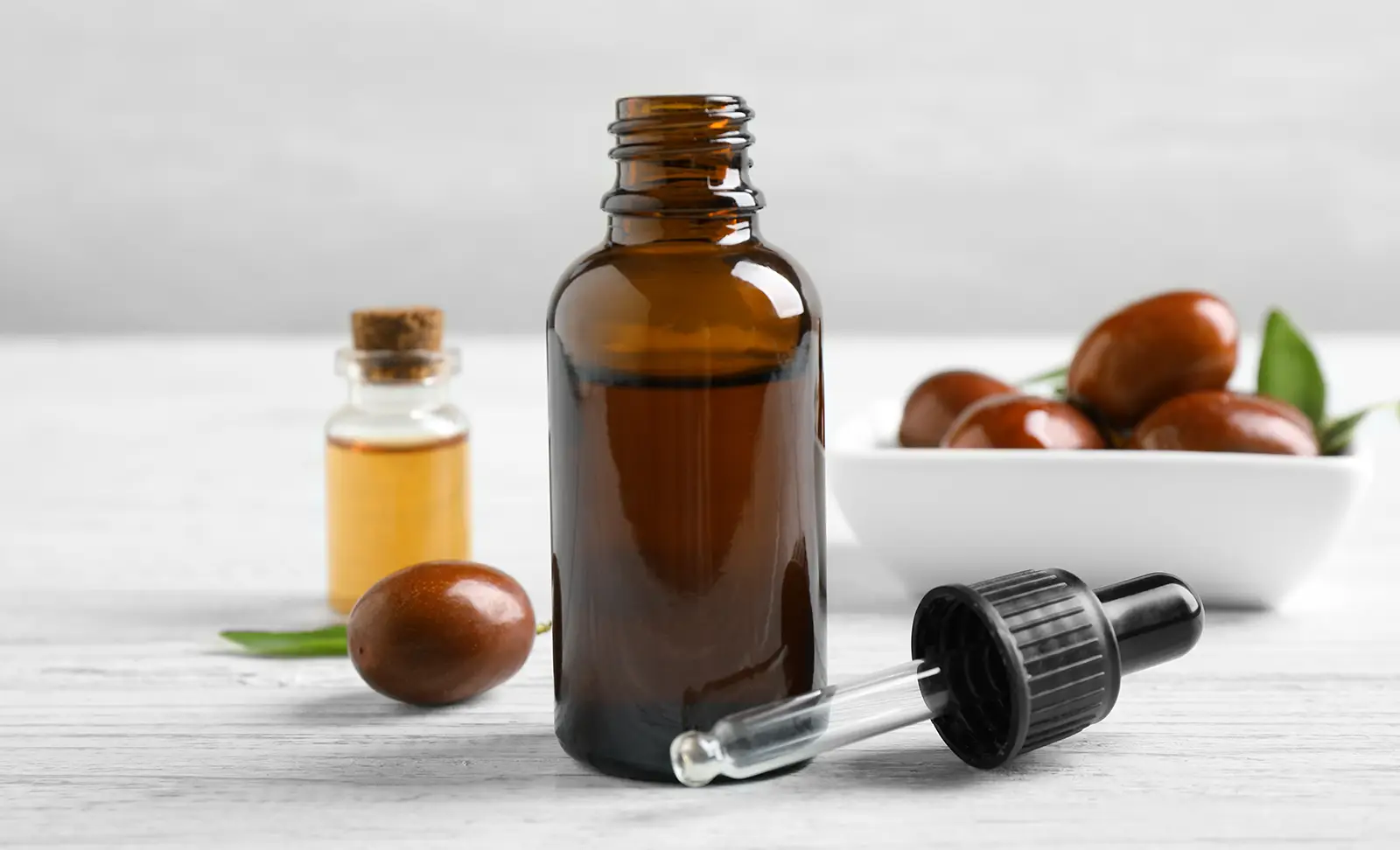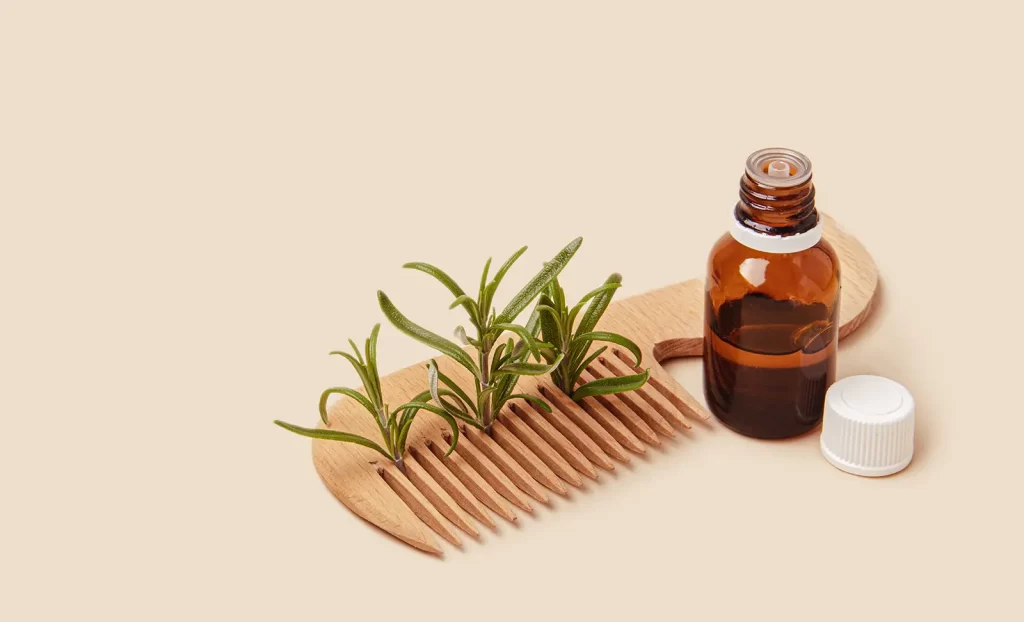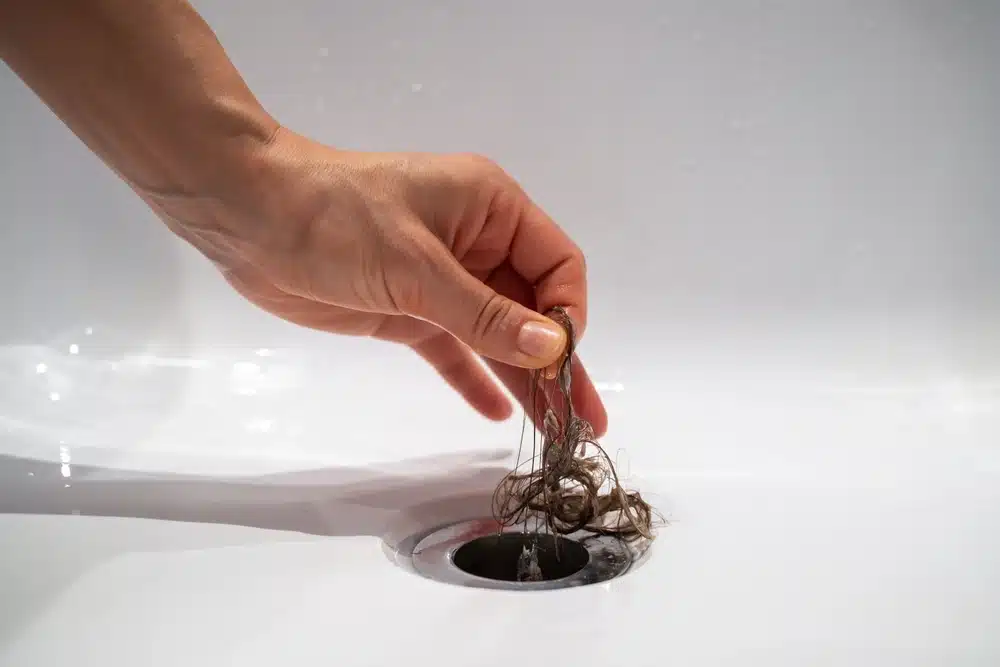Hair oils are essential oils made specifically for improved hair and scalp health. Different hair oils serve unique purposes – some are best for moisturising, some for protecting, some for strengthening, and some for increasing growth. Oils like rosemary oil and pumpkin seed oil, in particular, are known for supporting hair growth. However, they are a supplementary method and cannot replace medical or surgical treatments for hair loss caused by genetics or hormonal changes.
- What Are Hair Oils? They are essential oils applied to the hair and scalp for added moisture, strength, and protection.
- What Are the Most Popular Hair Oils? The most popular hair oils include argan oil, coconut oil, castor oil, jojoba oil, rosemary oil, and pumpkin seed oil.
- Which Hair Oils Boost Growth? Some of the most popular hair oils used to boost growth are rosemary oil, pumpkin seed oil, and peppermint oil. These are known to work due to their ability to stimulate circulation and boost blood flow to the scalp.
- How Do You Apply Hair Oils? Start by applying the oil to the hands to warm it through. Then, apply to the scalp and through the hair’s strands, going from top to bottom. Leave it in for some time before washing out with shampoo.
If you have even a slight interest in hair care, you have likely stumbled across hair oils before. There are many different types of hair oils, each coming with its own consistency, ingredients, and promises. It might even feel like there are too many to choose from!
Can Hair Oils Really Help Your Hair?
Yes. When used regularly, hair oil can prevent hair damage, strengthen the hair shaft, and boost overall lubrication. After using hair oil, you’ll notice that your hair is much shinier and luscious than it was before. Some oils are even beneficial for hair growth, helping some people regrow strands where they had previously experienced hair loss, and can be used as an alternative before going into something like finasteride or a hair transplant.
It might sound too good to be true, but hair oils are just that good and certainly worth adding to your hair care routine. That being said, here are some of the different hair oils and their benefits. They’re not all the same!
Rosemary Oil
Let’s start with an oil known for its ability to stimulate hair growth: rosemary oil. Rosemary oil is—as the name suggests—extracted from the rosemary plant. In some areas of the world, the oil is used to treat specific ailments like insomnia and headaches. So, what about its benefits for hair?
There is evidence to suggest rosemary oil can help people with androgenetic alopecia. In one study, scientists evaluated the effectiveness of rosemary oil vs minoxidil when treating androgenetic alopecia and monitored the results over six months. [1] After the six months, patients using either minoxidil or rosemary oil experienced a significant increase in hair count, indicating that rosemary oil for hair loss is just as effective as minoxidil.
Like other essential oils, rosemary oil strengthens the strands and creates more luscious locks. However, be careful if you decide to use this oil—most people find rosemary oil on its own too harsh on the scalp. Mixing the oil with a carrier hair oil, such as jojoba or coconut oil, is generally better.
Argan Oil
Argan oil is a common ingredient in various skin and hair products – and for a good reason. The oil comes from the argan tree in Morocco and boasts a range of hair-boosting ingredients, including vitamin E and antioxidants. Thanks to these ingredients, you can use argan oil for hair strengthening, hydration, frizz control, shine, and even protection. Yes, argan oil even provides a protective barrier around the strands, making it a valuable alternative to a heat protectant when styling your hair.
You can find lightweight argan oil if you don’t want a heavy oil to begin with. You can use it on dry and wet hair and enjoy similar benefits.
Coconut Oil
Coconut oil is made directly from coconuts, often using the milk mixed with some water. The result is a product that your hair will absolutely love. Coconut oil for hair works so well because it contains a bunch of fatty acids, which gives you hair a deep moisture while producing a soft, silky, and shiny finish. It’s especially fantastic for hair damaged by chemicals or heat.
It’s typically best to use coconut oil before washing your hair, as it’s quite a thick and intense oil that can weigh down your strands and result in a greasy appearance.
Castor Oil
Castor oil is a thick ingredient that comes from castor beans. It contains lots of nutrients and fatty acids, which help give your hair some serious shine. It’s beneficial for your scalp, too – it acts as an anti-inflammatory and is even often used as an antifungal treatment. As such, this oil is excellent for people with dry, itchy scalps, allowing them to heal and help grow more luscious hair.
There are also some rumours that castor oil works as a hair loss treatment; however, there’s not much evidence to back this statement up. Castor oil works well to protect, seal, and add shine to the hair, but it won’t actively grow any extra strands.
It’s also worth noting that castor oil is a very thick and somewhat sticky oil, so you will likely want to mix the oil with another one. You’ll probably find mixing castor oil for the hair with coconut oil a sensible idea, as it’ll be easier to apply. Plus, you’ll benefit from the additional scent of coconut!
Pumpkin Seed Oil
You can probably guess that pumpkin seed oil comes from pumpkin seeds. Did you also know this incredible oil contains fatty acids, magnesium, and zinc? This mix of ingredients works very well for the hair, helping add shine and even boost hair growth.
While more studies need to be performed, some evidence shows that pumpkin seed oil may promote hair growth and help those with male pattern baldness, as shown by this study which was performed on male mice. [2] A theory on how this works is through the phytosterols that are in the pumpkin seed oil, which may help block DHT – the hormone that leads to androgenetic alopecia.
Even if you’re not looking to regrow hair, pumpkin seed oil still has its other advantages, including keeping your hair shiny, moisturised, and strengthened. It can even colour your hair! If you enjoy adding a red hue to your strands, pumpkin seed oil will deliver just that in a safe and natural way.
Avocado Oil
Avocadoes aren’t only great as a healthy addition to your diet! Avocado oil also has a heap of benefits, especially when it comes to your locks. It’s intensely rich in nutrients such as biotin, potassium, and magnesium, which helps give your hair an undeniable shine while also strengthening elasticity. Use avocado oil regularly and say goodbye to split ends.
Another benefit of avocado oil is that it’s lightweight, especially compared to some other oils listed here. As a result, it works well on basically all hair types, including fine, thin hair. It also absorbs fast, so you can run it through your strands before you head out without worrying about it weighing down your hair too much.
Jojoba Oil
Jojoba oil is a commonly used ingredient in skincare and hair care products. It comes from the jojoba plant, which grows in the United States. It’s extremely moisturising and contains nourishing ingredients like vitamin B, vitamin C, vitamin E, and zinc. When used on the strands, it can help prevent breakage, reduce inflammation, and provide a rich shine.
Jojoba oil is quite thick and waxy, so it’s best to warm up the oil before use – you can do this on the stove, in a microwave, or even by rubbing it into your hands. It also works well when mixed with other products like a conditioner.
How to Use a Hair Oil
You now know the benefits of the best kinds of oils for the hair. The next question is, how do you use those oils?
To apply the hair oil, use your fingers to massage it into the scalp, using soft, slow, circular motions. You can even turn your head upside down during this phase to help stimulate blood flow even further. Once applied, you can leave the hair oil on for a few hours or overnight if you wish (it’s best to cover your hair with a towel if you’re leaving it on overnight). Then, you can wash it out with shampoo in the shower and proceed to condition your hair as usual.
You can also leave hair oil in during the day. Simply add a little oil to your strands as a protective layer, style your hair, and go about your day. It’s best to apply a minimal amount for this so you don’t give your hair a greasy appearance!
Of course, every hair oil is different – for best results, research the oil you buy depending on your hair type and find out the best way to apply that particular one. For example, some oils (like argan oil) are easier to have in throughout the day, whereas other oils (like castor oil) are pretty thick and will usually need washing out before you head out the door.
Trying to Regrow Your Hair?
While some oils, like rosemary and pumpkin seed oil, have evidence to suggest their ability to regrow hair, that doesn’t mean they work for everyone. If you’re looking for a cure for hair loss beyond hair oil for growth, you might not find it in a store-bought oil. That doesn’t mean all hope is lost. There are some other ways to regrow your hair, and the team here at Harley Street Hair Clinic can help you kickstart your journey to a full head of luscious, thick, naturally growing hair.
Our hair transplants are delivered by expert surgeons using the latest and greatest state-of-the-art technology to produce the most natural results. It’s a process that truly changes people’s lives. Just take a look at our patients gallery, where you’ll see the impact a FUE hair transplant can have on a person’s appearance and confidence.
Start Your Hair Restoration Journey Today
You don’t have to live with bald patches or thinning hair. To start your hair restoration journey, download our hair track app or get in touch today. We provide access to the best surgeons in the world, and you can book a no-obligation consultation if you simply want to learn about the treatment and whether it can work for you.
Sources:
- https://pubmed.ncbi.nlm.nih.gov/25842469/
- https://www.ncbi.nlm.nih.gov/pmc/articles/PMC6823528/






